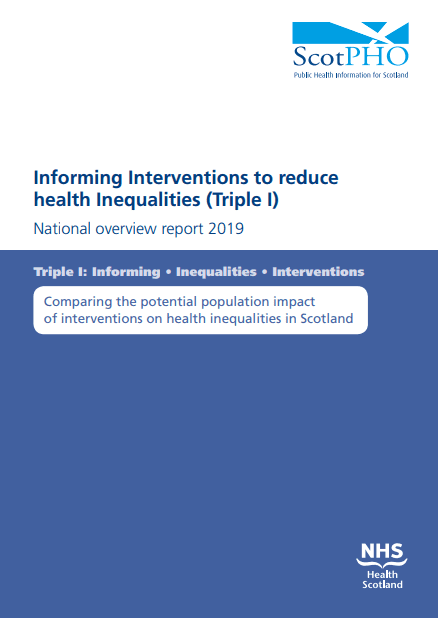Scotland: Interventions to Reduce Health Inequalities
 NHS Health Scotland has released the latest version of the excellent Triple-I tool that looks at the effectiveness of interventions to reduce health inequalities. It includes analysis of alcohol and tobacco control policy measures.
NHS Health Scotland has released the latest version of the excellent Triple-I tool that looks at the effectiveness of interventions to reduce health inequalities. It includes analysis of alcohol and tobacco control policy measures.
The strength of this work is the breadth of interventions that are analyzed: income-redistributing changes to taxes and benefits, preventative interventions like 20mph speed limits and tobacco taxes and mitigating interventions like CBT and Alcohol Brief Interventions.
For all of the interventions, the NHS Health Scotland models the costs of implementing each intervention respectively, the population-level effects on hospitalisations and premature mortality and how these effects are spread across the population, i.e. does the intervention improve or worsen existing inequalities.
Overall they find that interventions which redistribute income are the most effective at both improving health overall and reducing inequalities.
Preventative interventions also improve health and reduce inequality, but on a smaller scale than income-redistributing interventions.
While interventions that mitigate negative health outcomes like smoking cessation or alcohol brief interventions are the most cost-effective, they typically have much smaller population impact. They may also need to be proactively targeted at low income groups to reduce inequality.
